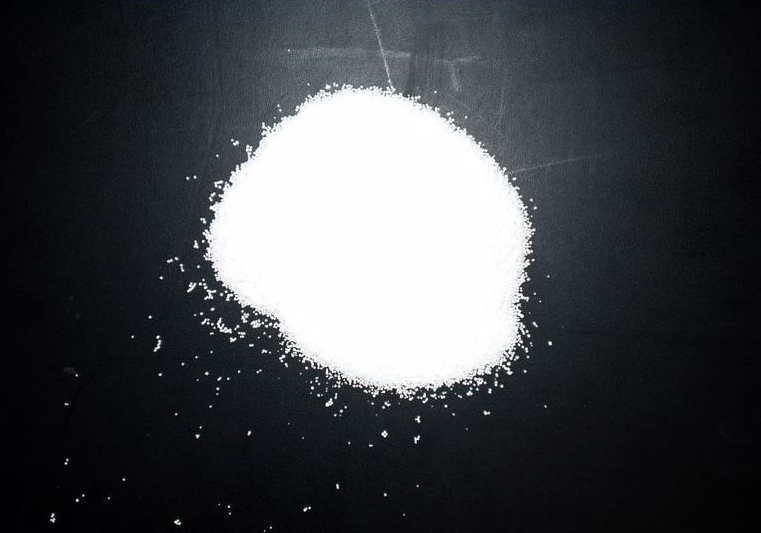Palm oil is a complex molecule that has not only transformed the baking industry, but was also recently found to be a good raw material feedstock for biodiesel manufacture. But the discovery led to several problems.
Problem 1: palm oil is too valuable as a food ingredient to be used to make fuel.
Problem 2: Processing of palm oil creates an unwanted waste product; palm oil sludge.
Fortunately, research chemists have found an upside for both the palm oil and the biodiesel industries.
Solution: Palm oil sludge can be used as a feedstock for making biodiesel.
Research conducted in 2010 by a team led by Thamrin Usman concluded that the standard chemical feedstock for turning palm oil sludge into biodiesel was to use alum (Al2(SO4)3·14H2O) as a catalyst. The following year, research conducted by Adeeb Hayyan and team found that palm oil sludge could be prepared for biodiesel production by using sulfuric acid and potassium hydroxide as catalysts.
However, both processes too relatively long to preform, leading to questions over high costs.
But now the latest research, published last month (August 2017), has found that a more economically viable method for manufacturing biodiesel from palm oil sludge is to use a two-step process with “alum in the first step and KOH in the second step.”
Publishing their results in the open access, academic journal, ScienceDirect, the team from Lambung Mangkurat University in Indonesia note that by using alum and KOH, “biodiesel production from Palm Oil sludge can be done in a shorter time with favorable quality.”
Why use Alum?
Alum is an excellent chemical feedstock for the production of biodiesel, as it is acidic, relatively cheap, easily available, and comes in solid form.
Furthermore, the researchers note that, “alum as a heterogeneous catalyst is more desirable [than homogeneous catalysts] because it can be easily separated from the mixture.” Additionally, “Acidic alum will add positively charged (protonated) to the carbonyl group of free fatty acids (FAAs), that can catalyze the esterification reaction with methanol (weak nucleophilic). [While] The heterogeneity of alum with the reaction mixture should facilitate easier separation.”
Why use KOH?
Potassium hydroxide also has many advantages as a chemical feedstock. Like alum, it is a low cost option, has a low environmental impact, and yet it has a high rate of activity in the transesterification reaction.

Potassium hydroxide a versatile and low cost chemical feedstock.
In the study, the researchers also outlined the optimum quantity of KOH needed in the catalyst, which they determined based on the “lowest value of kinematic viscosity and density” of the resultant biodiesel.
The researchers state that, “the highest yield of methyl esters with 1.5% of KOH is 93%. This concentration corresponds to previous work which produced biodiesel from chlorella protothecosis oil and argemone oil.”
Ultimately, the study concludes that, “Alum can be used as a heterogeneous catalyst in the conversion of Palm Oil sludge to biodiesel, with the optimum conditions: 20:1 (molar ratio of methanol to Palm Oil Sludge); 6% of alum in esterification; 1.5% of KOH in transesterification.”
Adding that, “Compounds in biodiesel from this work were palmitic acid methyl ester, trans-methyl oleate, cis-methyl oleate, and methyl stearate.”
Unfortunately, while, “The density of biodiesel has fulfilled the standard of quality (SNI 7182: 2012),” the researchers note that the standard for kinematic viscosity has not been met.
Clearly, more work is required before this new process can be applied to a practical level. However, the increased efficiency of this process over previous methods, coupled with the low cost of the alum and potassium hydroxide feedstock opens the way for improved usage of palm oil waste. Providing a possible solution to palm oil’s poor record of sustainablity.
If you are interested in potassium hydroxide, alum or other chemical raw materials then please take a look at the AG CHEMI GROUP product catalogue.
Alternatively contact AG CHEMI GROUP's potassium hydroxide specialist Hana Penkova directly on +420 777 996 467 or email: hana.penkova@agchemigroup.eu

Photo credit: DIYtrade and LivingonEarth